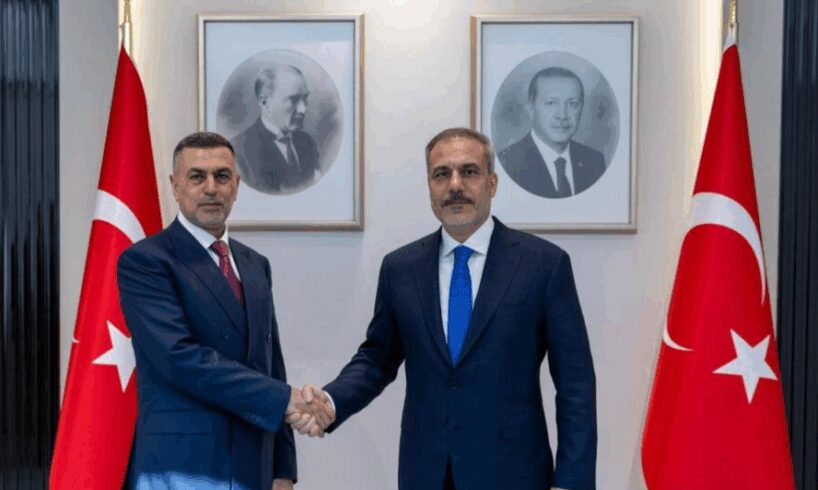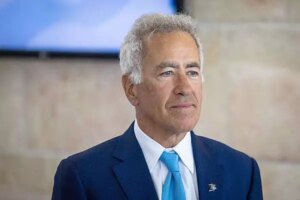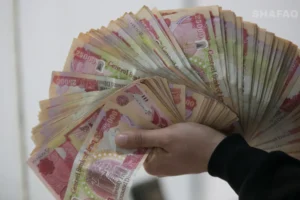
Shafaq News – Basra
Basra Governor Asaad al-Eidani’s recent visit to Turkiye has drawn
mixed political reactions across Iraq, particularly in the southern province he
represents. Some officials view the trip as a necessary step to address Basra’s
worsening water shortage through potential Turkish investment and cooperation.
Others, however, raise concerns about Ankara’s long-term intentions, warning
that such overtures could open the door to geopolitical leverage and influence
over Iraq’s internal affairs.
Basra water crisis a serious violation of right to life
A High-Profile Trip Amid Growing Thirst
Al-Eidani led a high-level delegation to Ankara this week, meeting
with Turkish Foreign Minister Hakan Fidan to discuss shared river flows and the
deepening water crisis in southern Iraq. According to a statement from the
governor’s office, the talks focused on the Tigris and Euphrates rivers, whose
reduced flows have devastated agriculture and drinking water supplies across
Basra, a province already reeling from extreme temperatures and failing
infrastructure. This compounded crisis has made Basra one of the most
water-stressed regions in the country.
Basra’s Water Department Director, Nizar Nasser al-Laibi, told
Shafaq News that the visit featured a roundtable meeting attended by senior
Iraqi and Turkish officials, including the Turkish Consul General in Basra and
representatives of DEİK (the Turkish Foreign Economic Relations Board),
alongside major Turkish companies.
According to al-Laibi, Turkish firms were formally invited to
participate in Basra’s reconstruction campaign, which spans a wide range of
sectors. Governor al-Eidani, he added, pledged full administrative support to
facilitate their entry into the local market and help ease visa procedures for
Turkish businesspeople.
“The offer was framed as part of a broader push to attract foreign
capital into Iraq’s underdeveloped provinces.”
A key proposal raised during the visit was a “twinning” initiative
with Istanbul. Turkish officials presented successful water distribution and
transport projects in the city that Basra hopes to replicate to rehabilitate
its aging network. During talks with Istanbul’s governor, Iraqi delegates also
emphasized the need for increased upstream water releases and improved water
quality to counteract salinity and climate stress in southern Iraq.
Mass die-offs hit Basra marshes amid rising salinity
A Sign of Local Desperation?
The trip has drawn mixed reactions from Iraqi lawmakers. MP Thaer
Mukheef, a member of Parliament’s Committee on Agriculture, Water, and Marshes,
framed the visit as an act of frustration more than strategy, suggesting the
move was reactive rather than part of a coordinated national plan.
“It seems the governor has lost hope in the [Iraqi] central
government, particularly the Prime Minister’s Office and other relevant
agencies. With Basra suffering from an acute water shortage, he likely feared
an imminent popular backlash,” Mukheef told Shafaq News.
Mukheef expressed doubts about Turkish commitments but said he
hopes the visit results in at least partial improvement in water flows to
Basra.
Constitutional Boundaries and Diplomatic Protocols
Governor al-Eidani’s outreach to a foreign state has raised legal
questions as Iraq’s constitution centralizes foreign policy and international
treaties under federal authority. However, MP Amer al-Fayez, a member of the
Parliamentary Foreign Relations Committee, clarified that local administrations
(governors) can initiate discussions with foreign actors as long as they
coordinate with Baghdad and secure federal approval.
“If coordinated with Baghdad and approved by the Foreign Ministry,
such visits are legitimate. Any subsequent agreements or contracts would then
be considered federally mandated,” al-Fayez told Shafaq News.
While acknowledging Turkiye’s own water scarcity, al-Fayez
emphasized that this does not justify limiting downstream flows. He welcomed
investment in Basra but warned against bypassing the constitutional framework
that governs foreign relations.
Iraq’s water crisis: Basra’s struggle for survival
Hidden Costs: Strategic Leverage and Border Politics
Behind the investment narrative, Iraqi parliamentary sources
suggest Turkiye’s broader strategy includes securing long-term political and
security footholds in Iraq. Speaking anonymously, one source warned that
Turkish cooperation often comes with “political strings,” such as sustaining
its military presence in disputed northern territories.
Sources also revealed that Turkiye has received preliminary
clearance to allow Turkish firms to construct between four and six dams across
Iraq. While such infrastructure could help regulate water distribution, critics
argue it would deepen Turkiye’s role in shaping Iraq’s internal water
governance.
This, they caution, could give Ankara new tools to influence water
access and policy decisions in Iraq’s most vulnerable regions.
Erdogan’s Gesture: Symbolic or Substantial?
In July, Iraqi Parliament Speaker Mahmoud al-Mashhadani announced
that Turkish President Recep Tayyip Erdogan had authorized a temporary increase
in water flow to Iraq—reportedly 420 cubic meters per second. However,
technical data from Mosul Dam authorities showed actual releases peaked at 350
cubic meters per second—falling short of the agreed-upon threshold.
Water policy expert Ramadan Hamza described the gesture as more
symbolic than transformative. “Iraq has not meaningfully benefited from the
increased discharges. The gains are marginal and will not suffice to meet
long-term demand,” he told Shafaq News.
Hamza stressed that while such boosts may temporarily stabilize
water levels, they do little to address the structural causes of Iraq’s
crisis—decades of mismanagement, lack of cross-border water-sharing agreements,
and growing climate stress.
He called for binding water-sharing treaties as a more sustainable
alternative.
A Local Initiative with National Implications
Whether al-Eidani’s trip marks a pragmatic search for solutions or
an overreach into foreign policy remains contested, but what is clear is that
the water crisis—worsened by climate change, upstream damming, and domestic
mismanagement—continues to push Iraqi officials at all levels toward unorthodox
and sometimes constitutionally ambiguous strategies.
The question now is whether
Baghdad will endorse, restrain, or replicate these provincial overtures in its
wider foreign policy framework.
Written and edited by Shafaq News staff.





